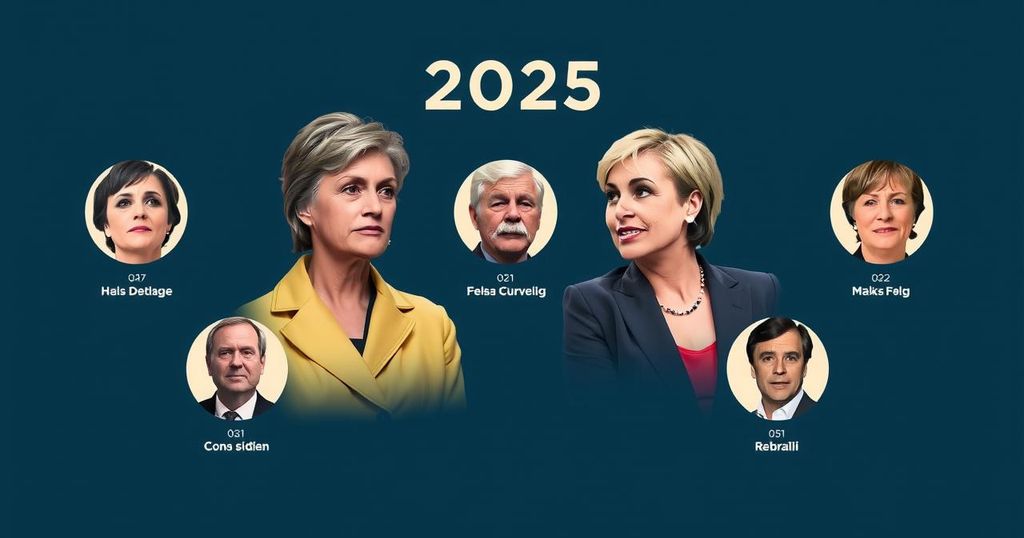Germany’s Leading Chancellor Candidates for the 2025 Elections

Germany’s February 2025 snap elections will feature several prominent candidates vying for the chancellorship. Among them are Olaf Scholz (SPD), Friedrich Merz (CDU), Robert Habeck (Greens), Alice Weidel (AfD), Christian Lindner (FDP), Sahra Wagenknecht (Left), and Jan van Aken (Left Party). Each candidate presents a distinct political platform and background, shaping the electoral dynamics ahead.
In anticipation of the snap elections scheduled for February 23, 2025, Germany’s major political parties have nominated their leading candidates for the chancellorship. The lineup presents a diverse array of experienced politicians with varying ideologies and backgrounds.
Olaf Scholz of the Social Democratic Party (SPD), born in 1958, has had a long career in politics, holding significant positions such as finance minister and current chancellor. His pragmatic approach has not completely dispelled perceptions of him as an aloof bureaucrat, contributing to his struggling approval ratings.
Friedrich Merz, representing the Christian Democratic Union (CDU) and born in 1955, is characterized by his conservative credentials and extensive business experience, including time spent at BlackRock. Merz’s candidacy marks him as the oldest chancellor aspirant in over half a century.
The Green Party candidate, Robert Habeck, born in 1969, is known for his relatable demeanor and a capacity for communicating complex government decisions effectively. His background as an author and translator complements his political pursuits and supports a more humanized image in politics.
Alice Weidel, born in 1979, serves as co-chair of the far-right Alternative for Germany (AfD). With a doctorate in economics and extensive experience in international contexts, Weidel is notorious for her provocative rhetoric, particularly against immigration and the European Union.
Christian Lindner, the 1979-born finance minister from the Free Democratic Party (FDP), is recognized for his dynamic social media presence and leadership style. Rising to prominence at a young age, Lindner has maintained his position as a powerful influence in German neoliberal politics.
Sahra Wagenknecht, a notable figure from the Left and born in 1969, is well-known for her populist approach and criticism of mainstream political practices. With a firm stance on economic issues and an aversion to migration, she has cultivated a loyal following.
Lastly, Jan van Aken, born in 1961, represents the Left Party. His scientific background as a former biological weapons inspector provides a unique perspective on policy-making, while his recent role as co-chair indicates an ongoing effort to revitalize his party’s standing in the electoral landscape.
The article delves into the German political landscape as the country approaches snap elections in 2025. The chancellor candidates from various parties reflect a mixture of traditional and progressive ideals, each bringing unique experiences to the electoral fray. This selection of candidates illustrates not only the political diversity in Germany but also the differing strategies of parties in appealing to the electorate. As Germany adapts to contemporary issues, the performance of these candidates during the campaign will likely set the stage for the country’s future political direction.
In summary, the upcoming snap elections in Germany showcase a lineup of notable candidates, each representing their respective parties with varying qualifications, backgrounds, and political ideologies. The candidates range from established political figures with extensive experience to newer representatives advocating for significant changes. The success of these individuals will hinge not only on their public personas but also on their ability to address pressing national issues and resonate with voters ahead of the elections.
Original Source: www.dw.com







